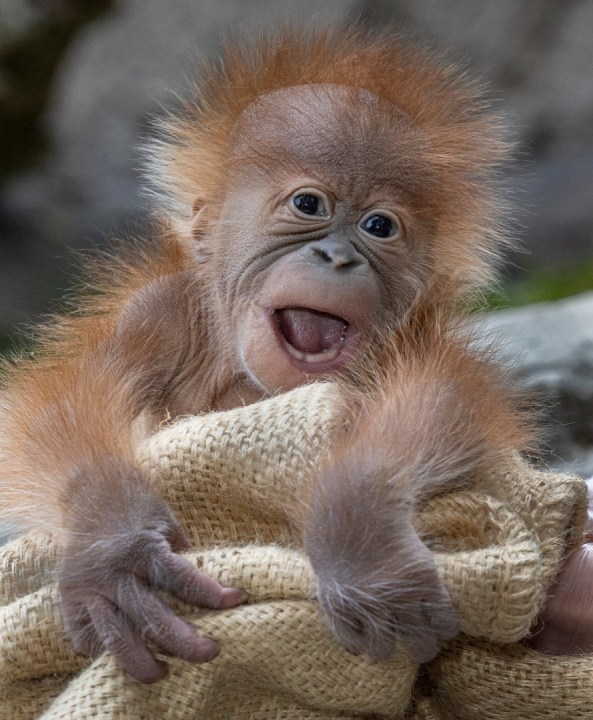A Sumatran orangutan was born at the San Diego Zoo earlier this month, marking the first birth of the critically endangered species there in more than seven years, zoo officials announced Tuesday.
His mother, 35-year-old Indah, delivered the healthy male infant orangutan on Jan. 4, according to a zoo news release. He was named Kaja, after the island Kalimantan, the Indonesian portion of Borneo.
“To witness the birth of such a majestic critically endangered animal is a remarkable experience and brings us hope for the future,” Erika Kohler, the zoo’s interim executive director, stated in a news release. “His birth increases the population by one and that is a necessary step in our ongoing efforts to gain a deeper understanding of orangutans so we can conserve the species where they live.”
The infant is Indah’s third child and the first since 2014, when she gave birth to daughter Aisha — the last time a Sumatran orangutan was born at the zoo.
Indah had some complications after the delivery, but is now on the mend, zoo officials said. Wildlife health and care specialists are carefully monitoring the mother and infant.
San Diego television station KNSD reported that Kaja is the son of Satu, the beloved orangutan who died last month at the age of 26 after collapsing at the zoo. Satu also sired Aisha, as well as a son named Cinta who is now at the St. Louis Zoo.
Satu’s death left the San Diego Zoo with three orangutans, including Indah and Aisha. With the birth of Kaja, there are four once more.
The International Union for Conservation of Nature Red List of Threatened Species lists Sumatran and Bornean orangutans as critically endangered. Their numbers have dwindled due to illegal wildlife trafficking and deforestation that impacted their habitat, forcing the primates closer to humans, according to the release.























